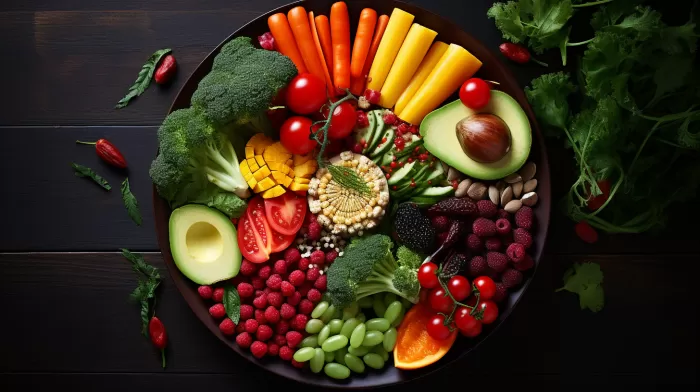If you’ve ever experienced the frustration of finishing a meal only to find your ravenous appetite hasn’t subsided, you’re not alone. Not feeling satisfied after eating can often result in overeating and weight gain, as well as digestive problems and metabolic imbalances. But why does this happen? Satiety, the feeling of fullness after eating, is influenced by brain chemistry. Some people may struggle to feel satisfied due to hormone imbalances, particularly with the hormones leptin and ghrelin.
It’s important to note that certain foods might not satisfy your hunger for long, but others can help you remain full for hours, so we need to make wise choices to avoid cravings and overeating.
When Hormones Talk, The Body Listens
Leptin is a hormone that plays a role in the complex system of biochemical signaling controlling feelings of hunger and satisfaction. People with a leptin imbalance struggle to feel full, so their hormone levels continue to tell their bodies to keep eating.
Ghrelin, on the other hand, is another important satiety hormone. While leptin signals us to feel satisfied, ghrelin tells us we’re hungry. Ideally, after a meal, ghrelin levels decrease while leptin increases. Unfortunately, hormone imbalances can often occur, leading to an increased desire to eat. Factors like higher body fat, certain food consumption, and other hormones can contribute to this imbalance — for example, fructose can induce leptin resistance, making us feel constantly hungry.
These complex hormone relationships vary greatly depending on factors like gender, weight, and more. However, research shows that various foods, supplements, and lifestyle changes can help balance hunger signals and feelings of satisfaction. A lack of sleep, for instance, contributes to an imbalance of more ghrelin, yet less leptin, making us feel hungrier.
Eating For Energy
Surprisingly, one of the best ways to increase satiety is to limit calorie-dense foods like fatty meats, cheeses, and fried foods. While high in calories, these foods don’t leave us feeling satisfied, and hunger cravings return quickly. Eating larger volumes of low-calorie foods, like whole fruits and vegetables, fills us up with fiber-rich and water-filled nutrition that helps us stay full for longer. Sprouted grains, beans, and lean protein are also excellent additions to any meal.
An easy-to-understand scale – the satiety index – can help you choose foods that provide the most satisfaction. Created by Australian researcher Susan Holt, this index differs from the glycemic index, which measures how quickly certain foods increase and/or lower blood sugar. High glycemic foods can cause blood sugar to spike and rapidly drop, resulting in an early return of hunger. Emphasizing foods that rank high on the satiety index and low on the glycemic index can help achieve the most energy and benefits from your diet.
Helpful Supplements
Numerous nutrients and botanicals can contribute to satiety and help fend off hunger pangs. For instance, chromium picolinate, popular among weight lifters to build muscle, might also help with satiety. Chromium was shown to have a direct effect on the brain’s perception of satisfaction, according to a study from the Pennington Biomedical Research Center in Louisiana.
Fenugreek, a fibrous plant commonly used in Indian cuisine, has also been found to increase satiety. Alginates extracted from brown seaweed have demonstrated similar results in studies, particularly when combined with pectin. Green tea is another item that has been shown to improve hunger satisfaction.
Mindful Eating Habits
Finally, another way to increase satisfaction from meals is to adopt mindful cooking and eating habits. A colorful array of diverse whole foods is visually appealing and nutritionally valuable, increasing satisfaction. Eating slowly and thoroughly allows enough time for hormonal signals to reach the brain, reducing the desire to eat more. Chewing food for longer also increases nutrient absorption in the gut, providing nutritional value and a satisfying feeling.
By choosing the right foods, supplements, and habits, we can boost our satiety and overall satisfaction with our meals, as well as our overall health.



